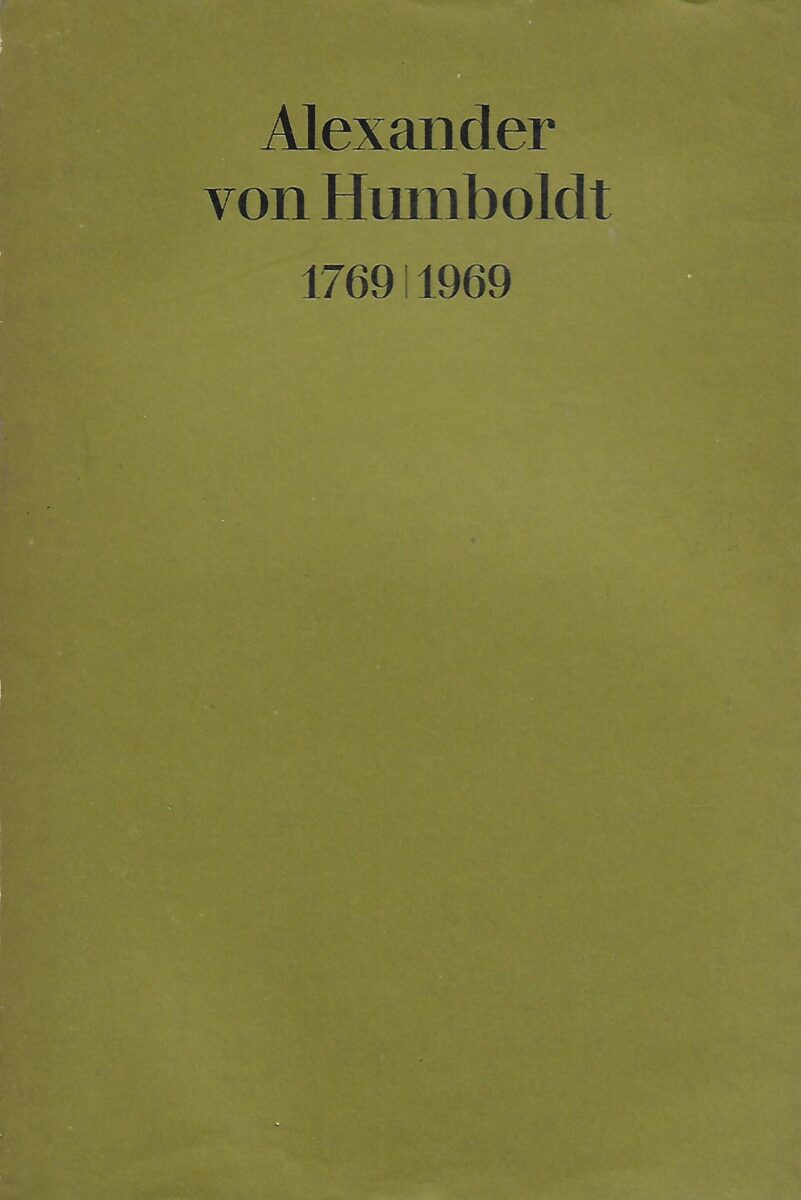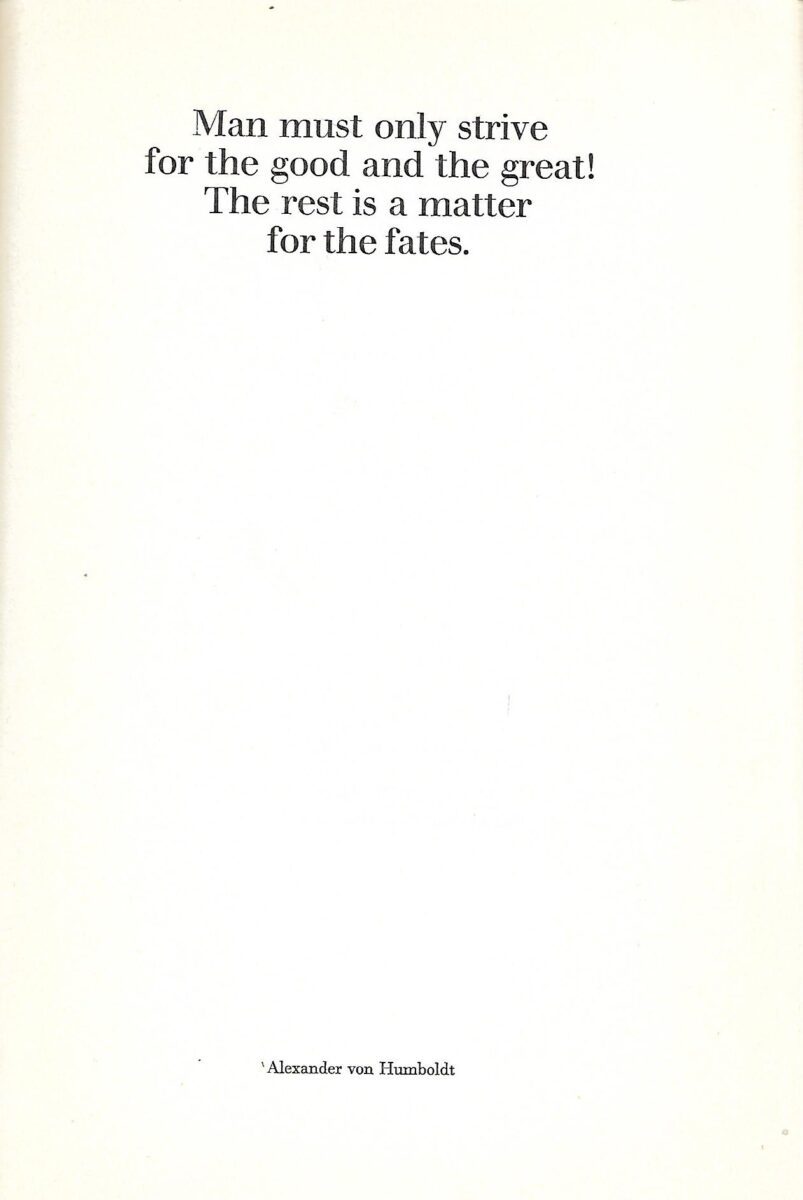Opis
Alexander von Humboldt (1769 – 1859) was a Prussian geographer, naturalist, explorer, and influential proponent of romantic philosophy. His quantitative work on botanical geography laid the foundation for the field of biogeography and his advocacy of long-term systematic geophysical measurement laid the foundation for modern geomagnetic and meteorological monitoring. Contemporaries spoke of him as second in fame only to Napoleon. All over the Americas and the English-speaking world, municipalities are still named after him, along with mountain ranges, bays, waterfalls, three hundred plants, and more than one hundred animals. There is a Humboldt Glacier, a Humboldt Asteroid, a Humboldt Hog-nosed Skunk. Off the coast of Peru and Chile, the giant Humboldt Squid swims in the Humboldt Current and even on the moon there is an area called Mare Humboldtianum. Darwin called him the “greatest scientific traveler who ever lived.” Humboldt’s popular writings inspired many scientists and naturalists, including Charles Darwin, Henry David Thoreau, John Muir, George Perkins Marsh, Ernst Haeckel, as well as brothers Richard Schomburgk and Robert Schomburgk. . . . . Contents: Alexander von Humboldt / Adolf Meyer-Abich.– Alexander von Humboldt’s synthesis of literature and science / Cedric Hentschel.– Letters from his travels / Alexander von Humboldt. — Chronological table. — The Alexander von Humboldt Foundation. . . . . Adolf Meyer-Abich (1893 – 1971) was a German philosopher, historian of science, university librarian, and university professor in Germany and Chile. He was one of the founders and main representatives of holism.






